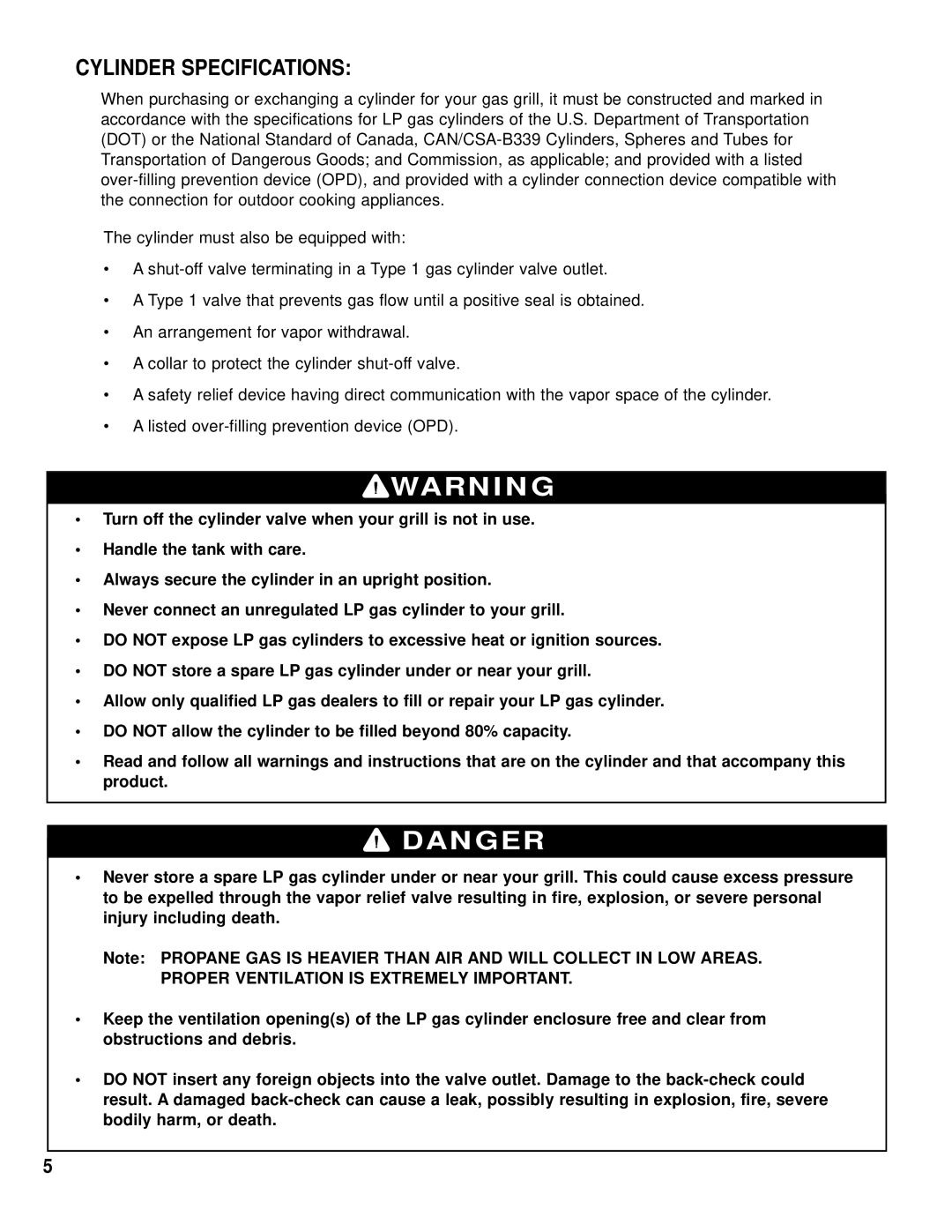
CYLINDER SPECIFICATIONS:
When purchasing or exchanging a cylinder for your gas grill, it must be constructed and marked in accordance with the specifications for LP gas cylinders of the U.S. Department of Transportation (DOT) or the National Standard of Canada,
The cylinder must also be equipped with:
•A
•A Type 1 valve that prevents gas flow until a positive seal is obtained.
•An arrangement for vapor withdrawal.
•A collar to protect the cylinder
•A safety relief device having direct communication with the vapor space of the cylinder.
•A listed
![]() WARNING
WARNING
•Turn off the cylinder valve when your grill is not in use.
•Handle the tank with care.
•Always secure the cylinder in an upright position.
•Never connect an unregulated LP gas cylinder to your grill.
•DO NOT expose LP gas cylinders to excessive heat or ignition sources.
•DO NOT store a spare LP gas cylinder under or near your grill.
•Allow only qualified LP gas dealers to fill or repair your LP gas cylinder.
•DO NOT allow the cylinder to be filled beyond 80% capacity.
•Read and follow all warnings and instructions that are on the cylinder and that accompany this product.
![]() DANGER
DANGER
•Never store a spare LP gas cylinder under or near your grill. This could cause excess pressure to be expelled through the vapor relief valve resulting in fire, explosion, or severe personal injury including death.
Note: PROPANE GAS IS HEAVIER THAN AIR AND WILL COLLECT IN LOW AREAS. PROPER VENTILATION IS EXTREMELY IMPORTANT.
•Keep the ventilation opening(s) of the LP gas cylinder enclosure free and clear from obstructions and debris.
•DO NOT insert any foreign objects into the valve outlet. Damage to the
5
